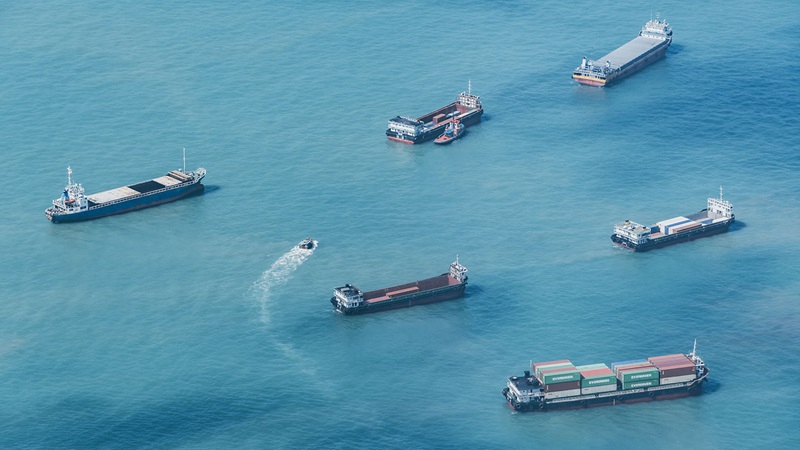Freeports are an essential ingredient of levelling-up
For over a hundred years there has been an economic gap between London and the rest of the UK, particularly around some of our coastal and port communities.
The Government has committed itself to “levelling-up” our country and giving much needed focus, attention and investment to areas that have sometimes been forgotten over the last few decades. To overcome multi-generational challenges and truly level up will take many years of concentrated effort and a range of different types of policy interventions.
The majority of the UK’s ports and airports are surrounded by areas which score highly on the Government’s Index of Multiple Deprivation, suggesting that they may require special and targeted investment and interventions. Looking specifically at the UK’s 30 largest ports, more than half are in the bottom quartile of Local Authorities when ranked by the Index of Multiple Deprivation, and three quarters are ‘below average’.
Freeports are a tried and tested approach that – if done well – can transform economic prospects and opportunities for local people. With over 3,500 free trade zones in existence across 135 countries, the UK has the advantage of being able to learn from elsewhere, taking the elements that work well, while creating a policy framework that avoids some of the downsides a small number of international Freeports have experienced.
The suggested Freeport model in the UK layers a wide range of potential benefits on top of the basic concept of a tariff free zone to encourage Foreign Direct Investment, development and the creation of high-paid high-value jobs. These benefits will be far broader than those awarded to Enterprise Zones, they will last for many more years and, because the UK has left the EU, will not fall foul of State Aid rules which have neutered the Freeports concept until now.
It is welcome that the Treasury is leading the charge for Freeports, with the Chancellor taking personal ownership of the policy development and where they will be allocated. It should come as no surprise that Freeports are so close to the Chancellor’s heart given the research he conducted as a backbench MP in 2016, which showed that if the UK’s approach performs as well as that in the USA, we can expect 86,000 jobs to be created
Mace’s own modelling – conducted by a former Treasury economist – showed that across just seven Northern ports and airports, trade could be boosted by £12bn, 150,000 high-quality jobs could be created, and £9bn could be added to the UK economy.
The idea is also nearly universally popular with the general public. According to private polling conducted for Mace by Survation, 83% of UK adults support the creation of Freeports, with particular spikes in popularity among the skilled blue-collar workers and those in the 35–44 age group, who are likely to benefit most from their allocation.
Freeport sceptics will often wrongly draw on the unrepresentative and misleading examples from overseas, using countries with poorer working conditions and employment practices, and fewer measures to combat illicit activity as a reason not to have them in the UK. Those who suggest that Freeports in the UK are about a “race to the bottom” should be cautious in making such claims.
For maximum benefit from the Freeport allocation in the UK, we suggest that potential Freeport Operators or the Treasury consider the following five points as they develop the policy and the ‘offer’:
- The R&D, tax, planning and customs benefits within a Freeport must be simple and easy to understand and access otherwise the administrative burden of accessing them will become greater than the benefit received.
- Each potential Freeport needs to focus on what makes them and their area unique. This includes areas of competitive advantage, existing business clusters and underlying skills of local people.
- The governance structure of Freeports must be agile and in keeping with the spirit of innovation, R&D and dynamism the Government is looking to foster. Research from Harvard Business School has shown that if governance structures become too large, too wide reaching and too slow at reaching decisions they have a significant impact on productivity and performance.
- Freeport zones need to be practical and deliverable. If too large an area or too many different ports are included within a Freeport zone the potential benefits may be reduced. This needs to be carefully balanced with the benefits of including different port modes – like rail and air, for example – especially where they are in close proximity to each other and their inclusion would reduce the chance of low value displacement.
- Businesses locating within a Freeport should be focussed on high-productivity, high-value and high-knowledge industries to promote levelling-up and increased opportunity for local people.
As the UK transition period with the EU ends in six months’ time, the government has the opportunity to deploy best-practice Freeports around the UK, which could have the dual benefits of boosting a Global Britain and making a significant contribution to the levelling-up agenda.
The opportunity is there for local communities, the Government and Freeport Operators alike - they just need to seize it.











